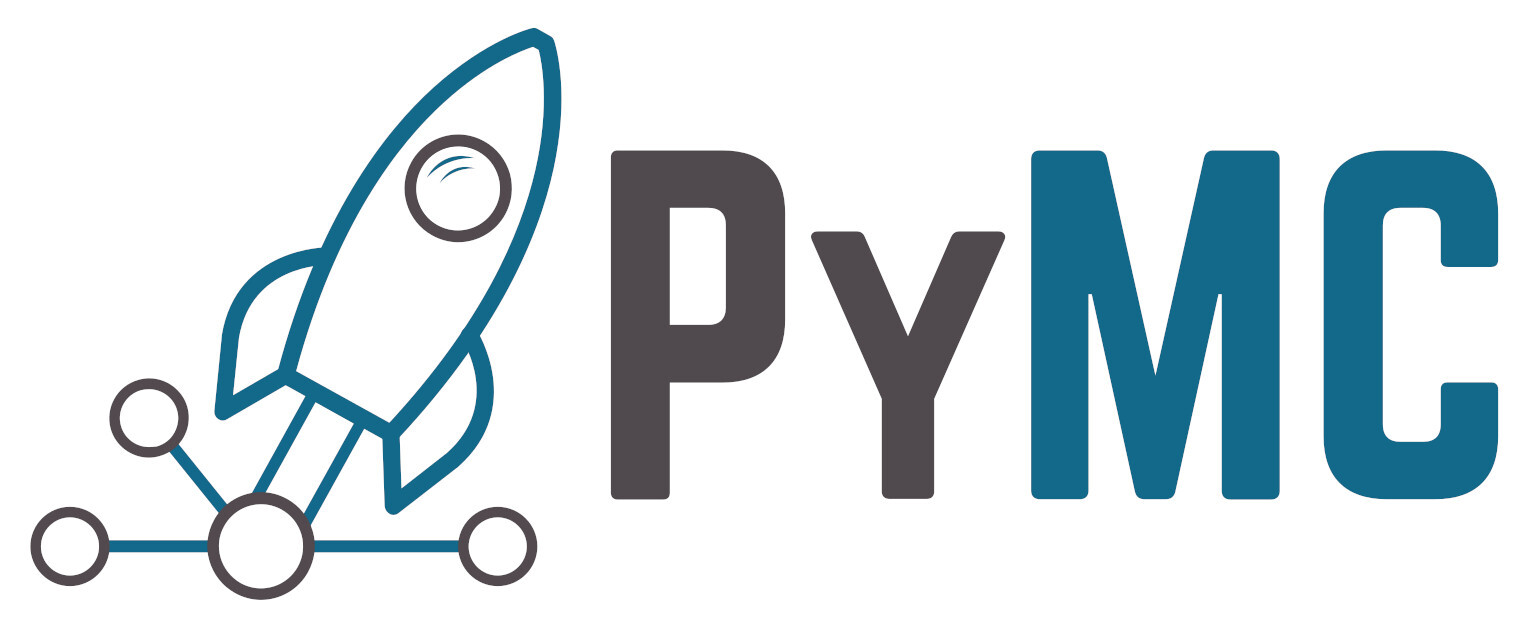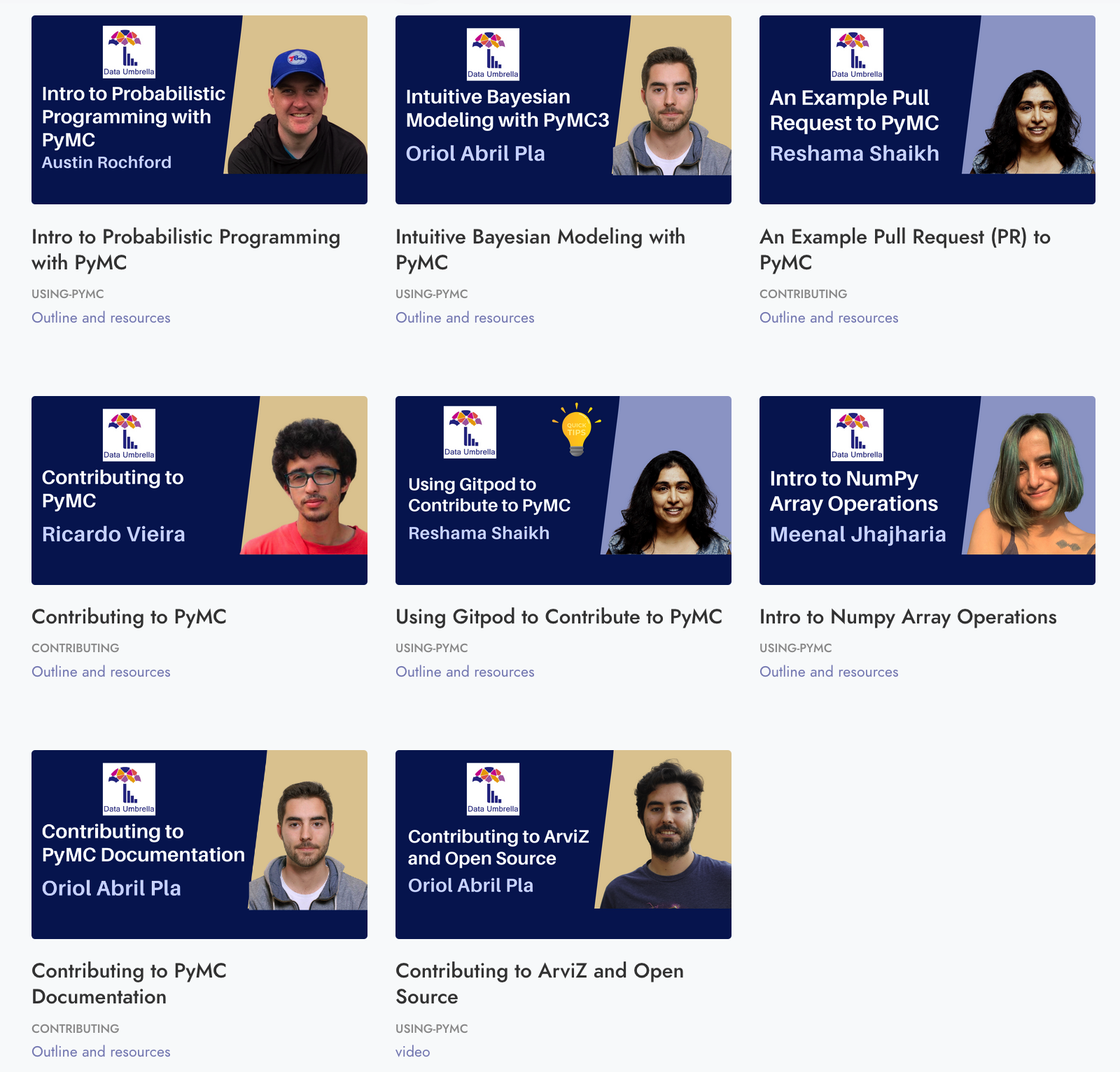PyMC is Participating in GSoC 2025#



Intro#
We are excited to share that the PyMC project is once again participating in Google Summer of Code (GSoC) under the NumFOCUS umbrella.
Getting started#
Attention
New contributors should first read the contributing guide and learn the basics of PyTensor. Also they should read through some of the examples in the PyMC docs.
To be considered as a GSoC student, you should make a PR to PyMC / PyTensor. It can be something small, like a doc fix or simple bug fix. Some beginner friendly issues have been tagged.
If you are a student interested in participating, please contact us on our PyMC Discourse site.
Project Ideas#
Below is a list of possible topics for your GSoC project, we are also open to other topics, contact us on Discourse. Keep in mind that these are only ideas and that some of them can’t be completely solved in a single GSoC project. When writing your proposal, choose some specific tasks and make sure your proposal is adequate for the GSoC time commitment.
Note
We expect all projects to be 350h projects, if you’d like to be considered for a 175h project you must reach out on Discourse. We will not accept 175h applications from people with whom we have not discussed their time commitments before submitting the application.
We have these PyMC GSoC 2025 projects:
Additionally, there are two other open source projects in the Bayesian space which are also participating in GSoC and you may be interested in checking them out:
ArViZ: ArviZ is a project dedicated to promoting and building tools for exploratory analysis of Bayesian models. It currently has a Python and a Julia interface. All projects listed below are for the Python interface.
Stan: Stan enables sophisticated statistical modeling using Bayesian inference, allowing for more accurate and interpretable results in complex data scenarios.
Tip
Here are examples of GSoC Discourse posts with project proposals:
GSoC 2023 project proposal by Shreyas Singh
GSoC 2023 project proposal by Daniel Saunders
Tip
Read about our past interns:
Contribute to PyMC#

GSoC 2025 Timeline#
These are key 2025 dates:
February 27: List of organizations announced
February 27 - March 24: Potential GSoC contributors discuss application ideas with mentoring organizations on PyMC Discourse site
March 24: GSoC contributor application period begins
April 8: GSoC contributor application deadline
April 29: GSoC contributor proposal rankings due from Org Admins
May 8: Accepted GSoC contributor projects announced
May 8 - June 1: Community Bonding Period | GSoC contributors get to know mentors, read documentation, get up to speed to begin working on their projects
June 2: Coding officially begins!
Resources#
Google Summer of Code (GSoC) Experience: Panel Discussion#
Google Summer of Code (GSoC) is a global, online program focused on bringing new contributors into open source software development. GSoC Contributors work with an open source organization on a 12+ week programming project under the guidance of mentors. In this panel discussion, we speak with several GSoC alumni of the PyMC project to learn of their experiences including the application process, mentorship experience and post-GSoC open source participation.
About the Panelists#

Tirth Patel GSoC 2020 & 2021
Tirth is a maintainer of SciPy and a contributor to a few other open-source projects like NumPy, PyMC, and scikit-learn. He participated in Google Summer of Code with PyMC in 2020 and with SciPy in 2021. He works primarily with Python and C, and he also codes with C++ and Julia. He is currently a graduate computer science student at Arizona State University.

Larry Dong GSoC 2021 & 2022
Larry is a PhD student in biostatistics at the Dalla Lana School of Public Health at the University of Toronto in Toronto, Canada. He began his PhD during the pandemic which has allowed him to be immersed in open-source, particularly in the PyMC community. His first GSoC project entailed implementing a Dirichlet Process submodule for PyMC and he returned for another GSoC to continue this project and to learn more about Aesara and AePPL.

Oriol Abril Pla GSoC 2019
Oriol has a background in engineering physics and astrophysics and currently works as a computational statistician. He is a core contributor and council member of ArviZ and PyMC projects. Oriol dedicates a lot of his time to community management and documentation because he believes they are as important as the code. He has helped organize and mentored in multiple Data Umbrella sprints. He has also mentored many new ArviZ and PyMC team members whose backgrounds ranged from computational scientist to technical writer.
